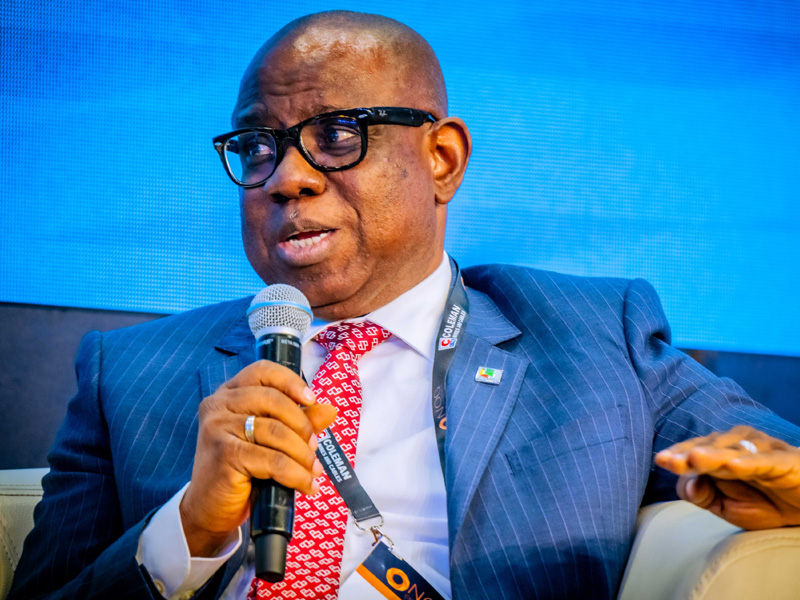Business
NNPC Projects Major Revenue Losses After PENGASSAN Strike Disrupts Production

The Nigerian National Petroleum Company (NNPC) Limited has issued a warning regarding significant revenue losses due to a strike by the Petroleum and Natural Gas Senior Staff Association of Nigeria (PENGASSAN). The strike, which was suspended on October 1, 2025, led to substantial disruptions in oil and gas production across Nigeria.
In a letter dated September 29, 2025, addressed to both the Nigerian Midstream and Downstream Petroleum Regulatory Authority (NMDPRA) and the Nigerian Upstream Petroleum Regulatory Commission (NUPRC), Bayo Ojulari, the group chief executive officer of NNPC, detailed the adverse effects of the industrial action. The strike caused a 16 percent loss in oil production, with immediate cash flow pressures resulting from missed liftings and gas sales.
Ojulari emphasized that the consequences of the strike extend beyond the operations of the Dangote Refinery. He expressed concerns that the disruptions introduce systemic risks to energy supply, personnel and asset security, as well as the broader economy. Within the first 24 hours of the strike, production deferments reached approximately 283,000 barrels of oil per day, 1.7 billion standard cubic feet of gas, and over 1,200 megawatts of power generation impact.
The loss equates to around 16 percent of the nation’s oil output, 30 percent of marketed gas, and 20 percent of electricity generation. Ojulari noted that five critical maintenance activities were halted during the strike, which will cause further deferments. These include maintenance on the USAN TAM, AKPO GT-3 pigging, hydrogen well tests, annual compressor maintenance, and SEPNU EAP IGE.
Additionally, Ojulari indicated that crucial projects faced delays, impacting timelines for production growth. The restoration of approximately 100,000 barrels per day of crude oil and 1.34 billion standard cubic feet of monetized gas across joint venture and production sharing contract assets has been postponed, despite non-unionised staff managing limited crude export operations. Overall operations remain significantly constrained.
The potential for additional financial setbacks looms as ongoing and planned lifting operations across terminals may encounter challenges. Ojulari pointed to the Brass Terminal as a specific example where loading of an NNPC cargo was stalled due to incomplete documentation during the strike, incurring demurrage costs.
“The financial impact is escalating quickly, with significant revenue losses projected under current deferment levels,” Ojulari stated. As the situation develops, the NNPC continues to engage with its operating partners and key stakeholders to enhance security measures and emergency protocols.
The strike was initiated over the dismissal of Nigerian workers by the Dangote Group, which ultimately agreed to redeploy the affected employees. The resolution of the strike has brought some relief, but the ramifications of the disruptions will likely be felt for some time.
-

 Entertainment3 months ago
Entertainment3 months agoAnn Ming Reflects on ITV’s ‘I Fought the Law’ Drama
-

 Entertainment4 months ago
Entertainment4 months agoKate Garraway Sells £2 Million Home Amid Financial Struggles
-

 Health3 months ago
Health3 months agoKatie Price Faces New Health Concerns After Cancer Symptoms Resurface
-

 Entertainment3 months ago
Entertainment3 months agoCoronation Street’s Carl Webster Faces Trouble with New Affairs
-

 Entertainment3 months ago
Entertainment3 months agoWhere is Tinder Swindler Simon Leviev? Latest Updates Revealed
-

 Entertainment4 months ago
Entertainment4 months agoMarkiplier Addresses AI Controversy During Livestream Response
-

 Science1 month ago
Science1 month agoBrian Cox Addresses Claims of Alien Probe in 3I/ATLAS Discovery
-

 Entertainment4 months ago
Entertainment4 months agoKim Cattrall Posts Cryptic Message After HBO’s Sequel Cancellation
-

 Entertainment2 months ago
Entertainment2 months agoOlivia Attwood Opens Up About Fallout with Former Best Friend
-

 Entertainment3 months ago
Entertainment3 months agoMasterChef Faces Turmoil as Tom Kerridge Withdraws from Hosting Role
-

 Entertainment4 months ago
Entertainment4 months agoSpeculation Surrounds Home and Away as Cast Departures Mount
-

 World3 months ago
World3 months agoCole Palmer’s Mysterious Message to Kobbie Mainoo Sparks Speculation











